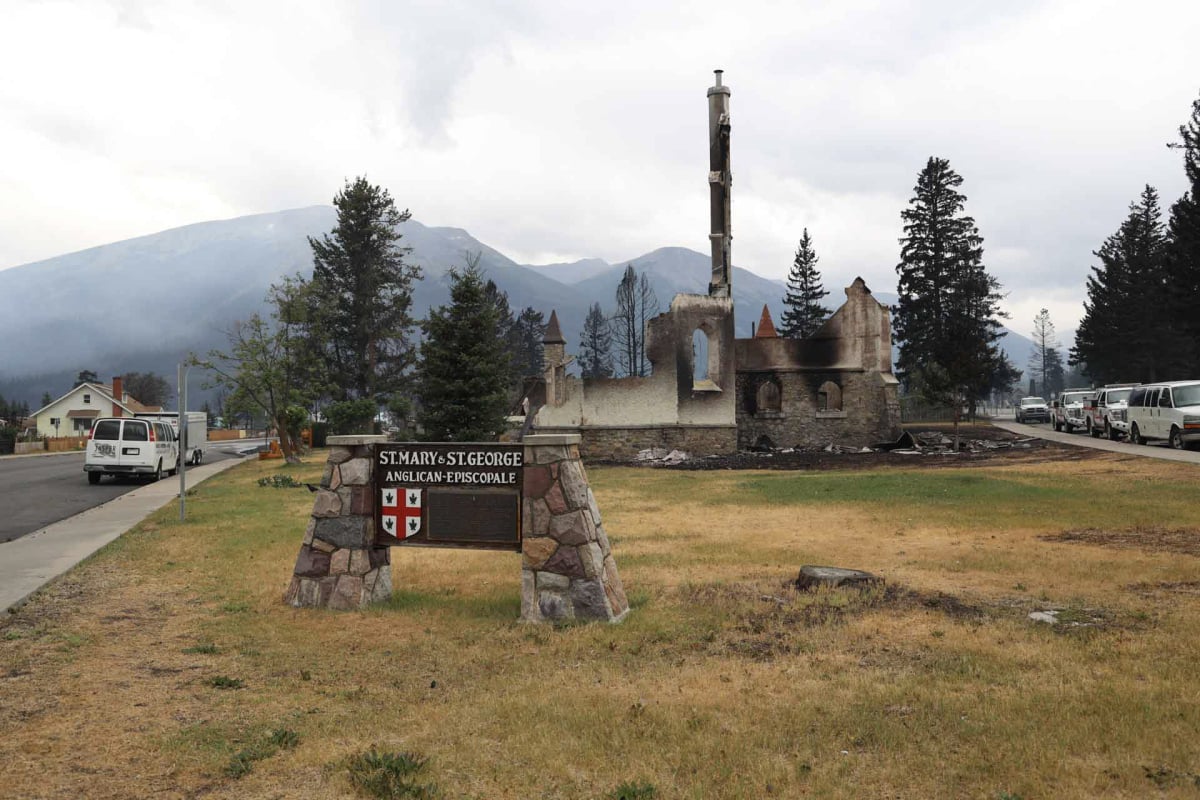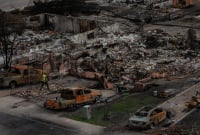Support strong Canadian climate journalism for 2025
At age 20, Etienne Eason has already spent years feeling powerless in the face of climate change.
“I remember sometimes on hikes in nature my mom would start talking about climate change and I would just sort of plug my ears and not want to hear it,” said Eason. “ I think that came not out of denial, but because I believed that there was nothing I could do about it– and therefore, I thought, ‘why talk about it?”
All that changed in the summer of 2023. His family’s home flooded when the remnants of Hurricane Debby pounded Montreal. For weeks, the city was shrouded in wildfire smoke, and Eason transformed his anxiety into action by joining Last Generation Canada, an environmental activist group that raises climate awareness.
Now, he’s bringing that same energy to his church. As a member of the Lutheran church’s Eastern Synod’s Climate Justice Task Force, Eason is helping organize a national climate action campaign. It’s a mix of worship, advocacy and education that urges members to take spiritual and political action on climate change, including support for the Fossil Fuel Non-Proliferation Treaty.
Eason told Canada’s National Observer that the wildfire smoke in May and June 2023 made the climate crisis feel real in a way it hadn't before. “It’s quite something when your entire city and your entire country smells of burnt toast,” he recalled, adding that it was the first time he physically experienced the effects of climate change, rather than just hearing about it on the news. “I was actively breathing it into my lungs.”
In 2023, Canada faced record-breaking wildfires fueled by soaring temperatures and severe drought conditions. This year, the wildfire crisis struck again causing catastrophic damage to the town of Jasper, Alberta. More than 30 per cent of the town’s buildings, including local churches, were destroyed and thousands of residents were evacuated.
Eastern Canada was also hit with extreme weather; Toronto and Montreal experienced significant and costly flooding. Eason said all these events underscore the devastating impact of climate change on communities and places of worship.

The Eastern Synod of the Evangelical Lutheran Church in Canada's (ELCIC) Climate Justice campaign runs through September until October 4. And Eason hopes the church’s efforts will inspire policymakers to take meaningful climate action by phasing out fossil fuel expansion. It hopes to mobilize Lutheran churches from Nova Scotia to Ontario in advocacy, educational talks, demonstrations and letter-writing, striving to turn faith into action.
Eason said the campaign is also mounting a letter-writing blitz, urging elected officials to sign and implement the Fossil Fuel Non-Proliferation Treaty, an international initiative calling for an end to fossil fuel expansion and transition to renewable energy. The treaty would commit Canada to halting fossil fuel expansion, phasing out existing production, and ensuring an equitable transition.
The treaty is a crucial step toward addressing the root causes of climate change, said Eason. Faith communities hold considerable moral authority which they can wield to address issues like climate change.
“We're encouraging pastors in our church organizations to incorporate themes of environmental stewardship into the liturgy,” Eason said. The idea is to make climate change a key topic in prayers, sermons, and other spiritual practices during the campaign, he added.
Eason said the campaign is creating space for “meaningful” conversations about climate change as an opportunity for people to delve into scientific and spiritual dimensions of the climate crisis. “Typically, we get information from the news, social media, or statistics—but rarely do we have the chance to deeply discuss it, especially in the context of our faith.”
These talks will explore what science says about the climate crisis and what the Bible teaches about caring for creation, he said. “The climate crisis can be a crisis of faith for some. For instance, people may wonder, ‘Why isn’t God stepping in? Why isn’t God doing anything to help us?’” By drawing parallels to other social justice movements, such as the civil rights movement, the church hopes to demonstrate how faith can be a powerful motivator for political action, he added.
“It will take change at a societal level to solve this crisis,” said Rafael Rodriguez, director of public policy and service ministries at the Eastern Synod, in a statement. “All hands need to be on deck if we hope to maintain a planet that can sustain life.”






Comments